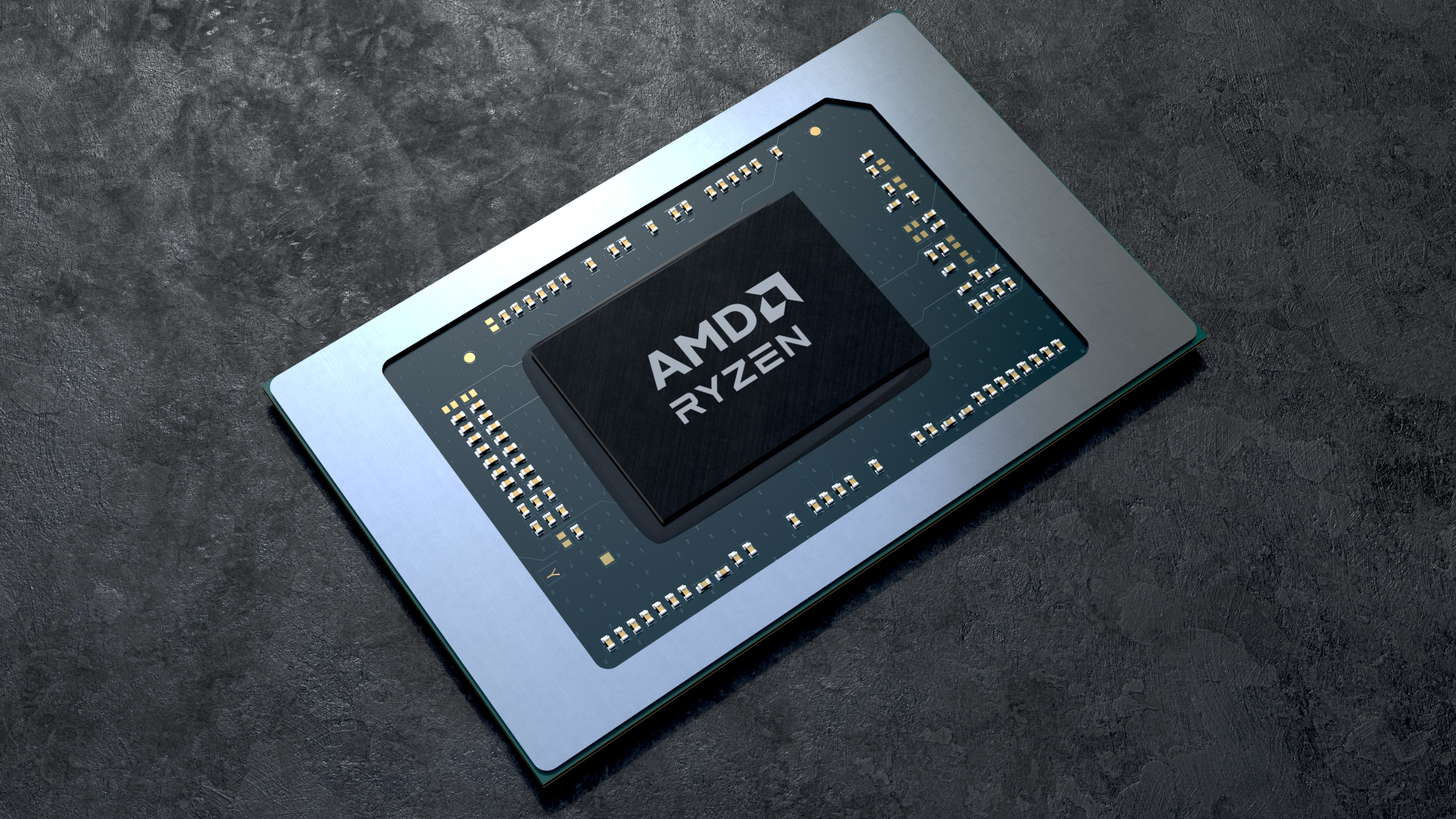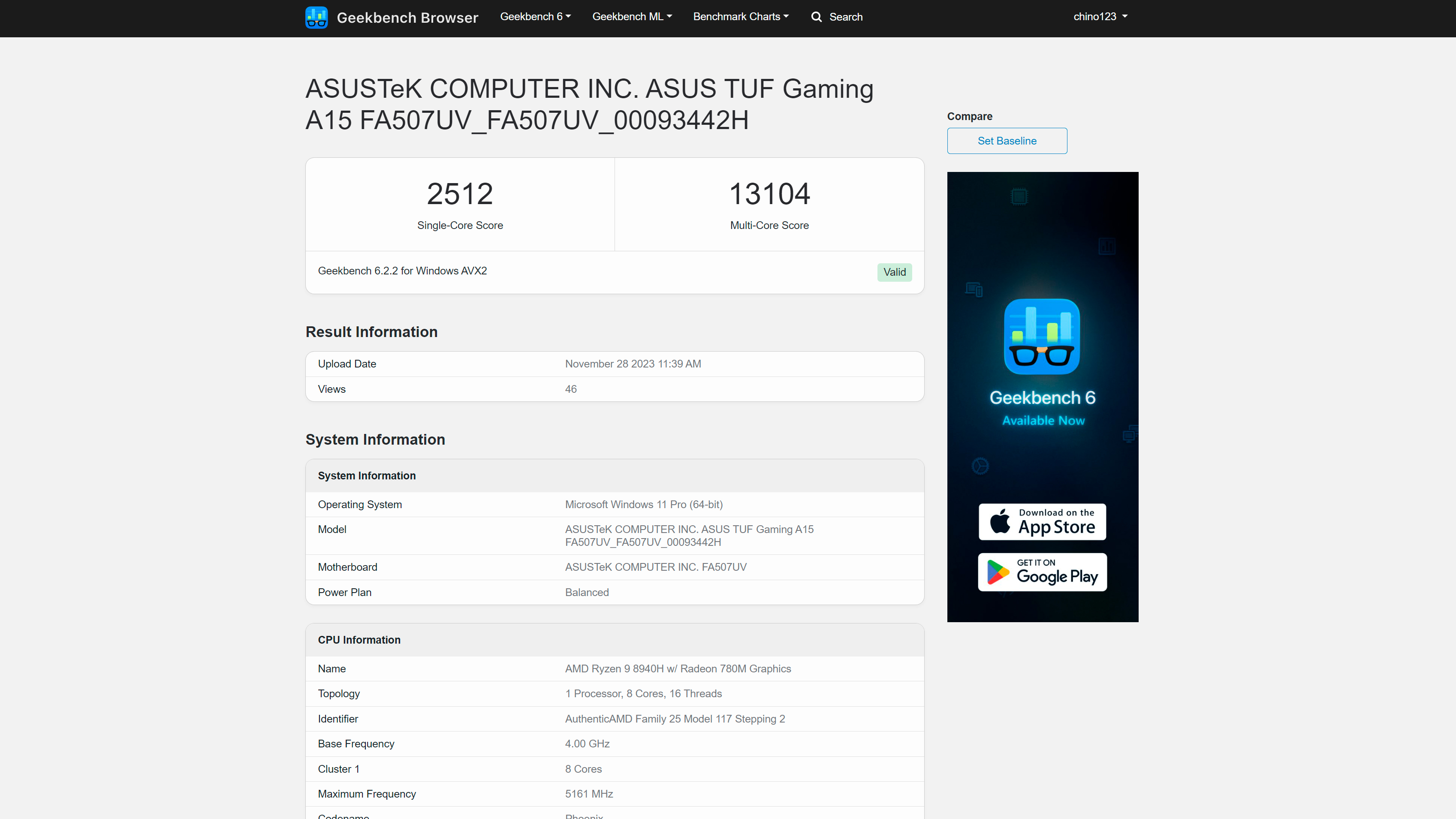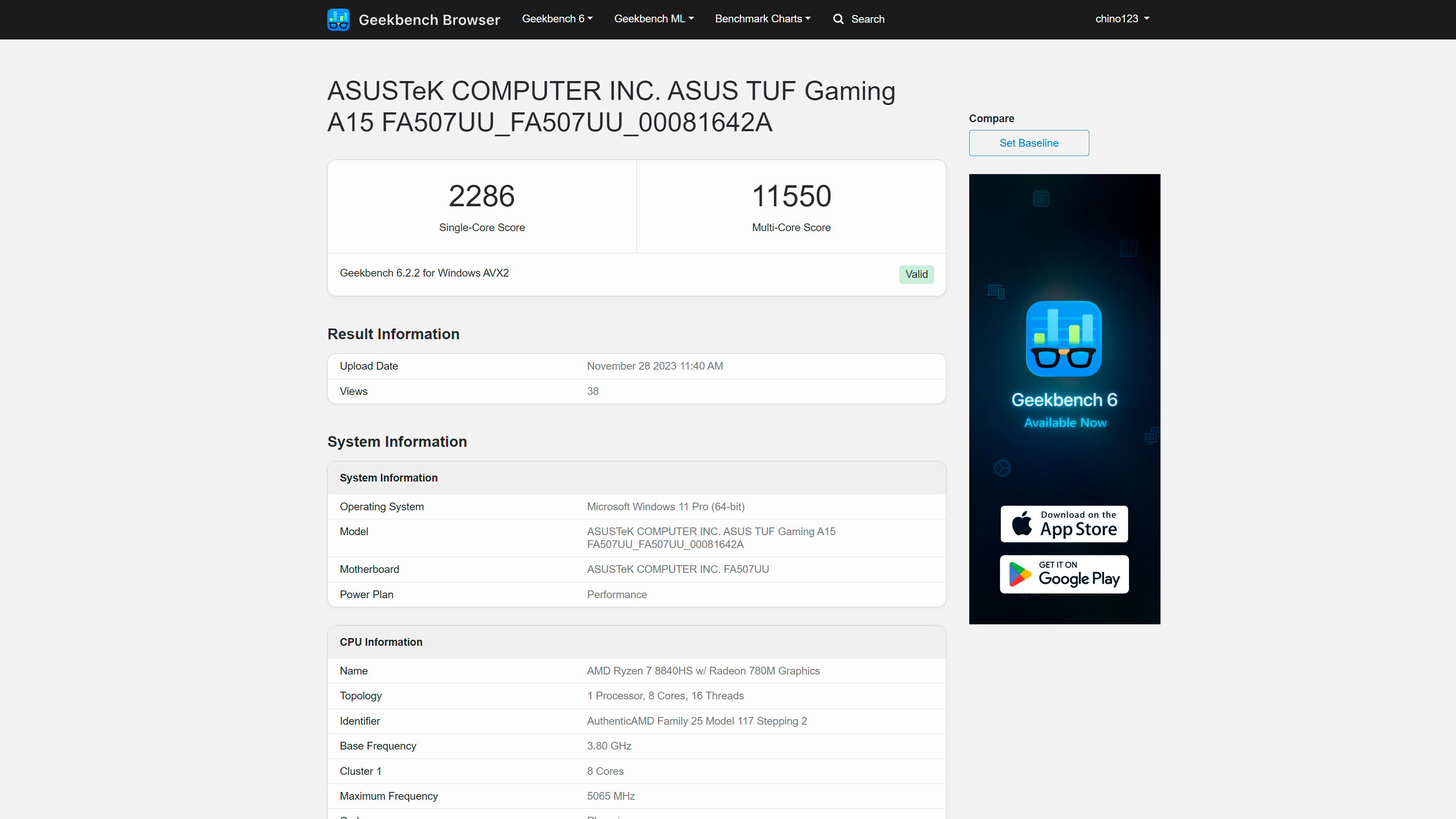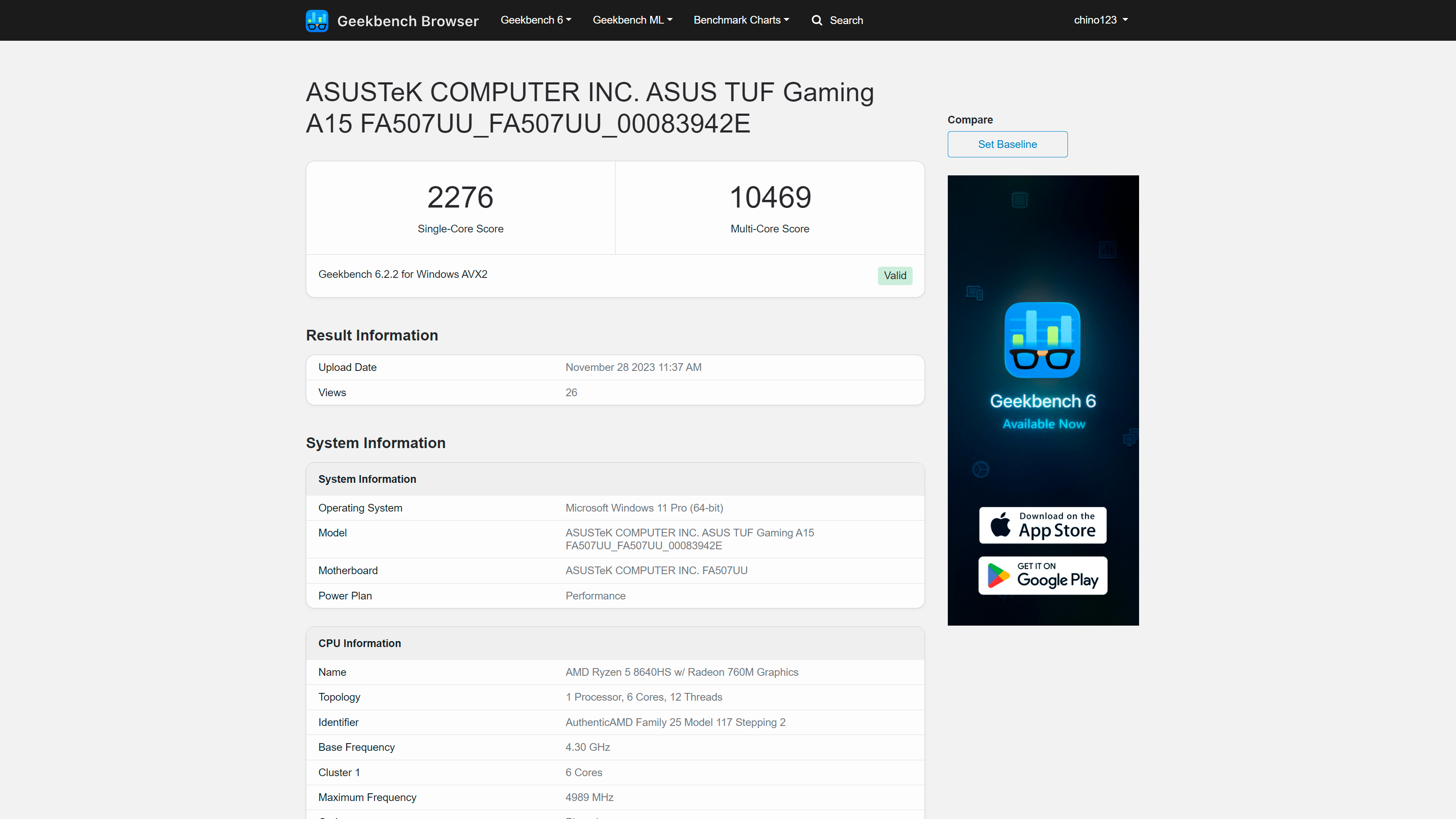AMD Ryzen 8040HS Hawk Point CPU benchmarks show modest gains — Phoenix reborn to fight Intel Meteor Lake

AMD's Ryzen 7040 series (Phoenix Point) just came out earlier this year. However, the chipmaker appears to already have a refresh ready in the form of the Ryzen 8040 series (Hawk Point). These won't try to compete with the best CPUs for gaming or the best budget CPUs, at least not directly, as they're primarily intended for laptop use. But the best budget gaming laptops might find these a worthy addition.
Phoenix Point brought AMD's Zen 4 cores and RDNA 3 graphics to the ultra-thin laptop market in 35W–54W HS and 15W–30W U flavors. However, Phoenix had a rocky launch, with AMD having promised a March release but missing the deadline and not shipping the Zen 4 chips to partners until April. That meant it wasn't until after May that we started to see Phoenix-powered laptops at retail. Phoenix hasn't been on the market for long, in other words, so it's a bit surprising to see AMD plans for a refresh so early in the life cycle.
Hardware detective Benchleaks has uncovered Geekbench 6 results for the Ryzen 9 8940H, Ryzen 7 8840HS, and Ryzen 5 8640HS. It would seem that AMD is maintaining a lineup similar to the Phoenix HS series, with only three models. Geekbench 6 also reports the Hawk Point chips as Phoenix, suggesting AMD is simply rewarming the Phoenix silicon for the new processors.
The Ryzen 8040 series continues to wield Zen 4 cores, but the graphics engine remains an uncertainty. Early rumors pegged Hawk Point with RDNA 3.5 graphics, a slight improvement over RDNA 3. We don't expect AMD to push the core count, so if there's any enhancement to RDNA 3.5, it would be higher clock speeds or perhaps integrated L3 cache for the GPU. Sadly, Geekbench 6 doesn't expose the specifications of the iGPU, so we can't confirm any of the early speculation.
AMD Ryzen 8040 Hawk Point Specifications*
| Model | Cores / Threads | Boost / Base Frequency (GHz) | L3 Cache (MB) | Graphics | Graphics Core Count | Graphics Frequency (MHz) | TDP (W) |
|---|---|---|---|---|---|---|---|
| Ryzen 9 8940H | 8 / 16 | ? / 4.0 | 16 | Radeon 780M | 12 | ? | 35-54 |
| Ryzen 9 7940HS | 8 / 16 | 5.2 / 4.0 | 16 | Radeon 780M | 12 | 2,800 | 35-54 |
| Ryzen 7 8840HS | 8 / 16 | ? / 3.8 | 16 | Radeon 780M | 12 | ? | 35-54 |
| Ryzen 7 7840HS | 8 / 16 | 5.1 / 3.8 | 16 | Radeon 780M | 12 | 2,700 | 35-54 |
| Ryzen 5 8640HS | 6 / 12 | ? / 4.3 | 16 | Radeon 760M | 8 | ? | 35-54 |
| Ryzen 5 7640HS | 6 / 12 | 5.0 / 4.3 | 16 | Radeon 760M | 8 | 2,600 | 35-54 |
*Specifications are unconfirmed.
The Ryzen 9 8940H and Ryzen 7 8840HS are 8-core/16-thread parts, while the Ryzen 5 8640HS has a 6-core/12-thread configuration. The core count is the same as their Phoenix predecessors, in other words. All of the CPUs, Hawk Point and Phoenix alike, have a configurable TDP of 35–54 watts. However, the Ryzen 9 parts will generally get sold in laptops using the 54W configuration, while the others tend more toward the 35W end of the spectrum.
The base clock speeds appear unchanged on the Ryzen 8040 series. The Ryzen 9 8940H, Ryzen 7 8840HS, and Ryzen 5 8640HS run at 4 GHz, 3.8 GHz, and 4.3 GHz, respectively, the same as their Phoenix equivalents. The maximum boost clocks are unknown, though Geekbench shows slightly above 5.1 GHz for the Ryzen 9 8940H, 5 GHz for the Ryzen 7 8840HS, and 4.9 GHz for the Ryzen 5 8640HS. These reported values align with Phoenix's boost clock speeds (minus 100 MHz in each case, as we're looking at real-world clocks rather than maximum boost here).
Geekbench 6 corroborated that the Ryzen 9 8940H and Ryzen 7 8840HS tap the Radeon 780M, whereas the Ryzen 5 8640HS is downgraded to the Radeon 760M. Since the leaked benchmarks evaluate processor performance, we couldn't see the clock speed of the iGPU.
AMD Ryzen 8040 Hawk Point Benchmarks
| Model | Single-Core Score | Multi-Core Score |
|---|---|---|
| Ryzen 9 8940H | 2,512 | 13,104 |
| Ryzen 9 7940HS | 2,485 | 11,829 |
| Ryzen 7 8840HS | 2,286 | 11,550 |
| Ryzen 7 7840HS | 2,397 | 11,112 |
| Ryzen 5 8640HS | 2,276 | 10,469 |
| Ryzen 5 7640HS | 2,323 | 8,903 |
The usual disclaimer of salt sprinkles applies for these early benchmarks. The results for Hawk Point were from single runs, while the scores for Phoenix are the aggregate results from Geekbench 6's database. There's a big difference in the sample size, and the benchmarks weren't run on the same laptops.
The Ryzen 9 8940H was only 1% faster than the Ryzen 9 7940HS in single-core performance but 11% faster in multi-core performance. That's the big outlier, but considering the 7940HS may have results from both 35W and 54W laptops, we'd expect a single result run at 54W to be higher. Meanwhile, the Ryzen 7 7840HS showed 5% higher single-core performance than the Ryzen 7 8840HS, while the Ryzen 7 8840HS exhibited 4% higher multi-core performance than the Ryzen 7 7840HS.
Lastly, the Ryzen 5 7640HS outpaced the Ryzen 5 8640HS by a 2% margin in single-core performance. Nonetheless, the Ryzen 5 8640HS got its revenge in the multi-core test, where it bested the Ryzen 5 7640HS by a significant 18% delta. Again, it's difficult to say how relevant these overall versus single result comparisons might be, but it's possible AMD has managed improved tuning to sustain higher clocks in multi-threaded workloads.



AMD will likely launch Hawk Point sometime next year, likely sooner than later, though the new chips don't represent a massive performance leap over Phoenix Point. For that, consumers will have to wait for Strix Point, which may also arrive next year. Strix Point will tap AMD's forthcoming Zen 5 microarchitecture, so a more significant generational uplift is expected. However, the graphical side won't get the same treatment since Strix Point should still come with the RDNA 3.5 graphics engine.
Intel will launch Meteor Lake for laptops on December 14, so the chips will be on the market shortly. It makes sense for AMD to refresh Phoenix Point to remain competitive in the mobile segment against Meteor Lake. How they'll hold up remains to be seen.
Get Tom's Hardware's best news and in-depth reviews, straight to your inbox.

Zhiye Liu is a news editor, memory reviewer, and SSD tester at Tom’s Hardware. Although he loves everything that’s hardware, he has a soft spot for CPUs, GPUs, and RAM.
-
Roland Of Gilead Much ado about nothing!! Apart from the fact that there is a regression in single core performance on two of the SKU's. That's a first!!! At least AFAIK. Anyone complaining that Intel's 13th to 14th Gen increase in performance was underwhelming with mostly just an a small increase in mhz, should think that AMD are doing the same, but even worse.Reply
Funny world we live in. -
usertests Reply
You can't be sure of any regression from a sample size of 1.Roland Of Gilead said:Much ado about nothing!! Apart from the fact that there is a regression in single core performance on two of the SKU's. That's a first!!! At least AFAIK. Anyone complaining that Intel's 13th to 14th Gen increase in performance was underwhelming with mostly just an a small increase in mhz, should think that AMD are doing the same, but even worse.
Funny world we live in.
We've already seen AMD refresh Cezanne and Rembrandt repeatedly, with minimal improvements, such as 5825U "Barcelo" and 7730U "Barcelo-R". This is the Phoenix version of that. The actual new gen is Strix Point and that's coming later in the year, maybe Q3 2024.
The only surprise to watch out for is a possible +60% improvement in XDNA performance in Hawk Point, seen on a leaked slide. -
Roland Of Gilead Reply
Yes, that is true. And of course until the actual release, it's more speculation than anything. Still though, Geekbench is pretty linear, and given the launch is around the corner, I don't know if there would enough time to increase in performance to be had before release. We can wait and see for more benches.usertests said:You can't be sure of any regression from a sample size of 1.